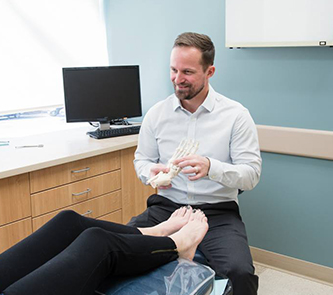Plantar Warts Treatment
Our Podiatrists are Here to Help.
Many people needlessly suffer from plantar warts because they don’t know where to turn or are too embarrassed to talk about these painful, often unsightly lesions. The good news is that foot warts are both preventable and treatable.
Our team is uniquely equipped and qualified to diagnose and treat plantar warts. From laser therapy and microwave therapy, to surgical excision and topical medications, we offer a variety of effective treatment options at both our offices in Portsmouth and Nashua, New Hampshire.
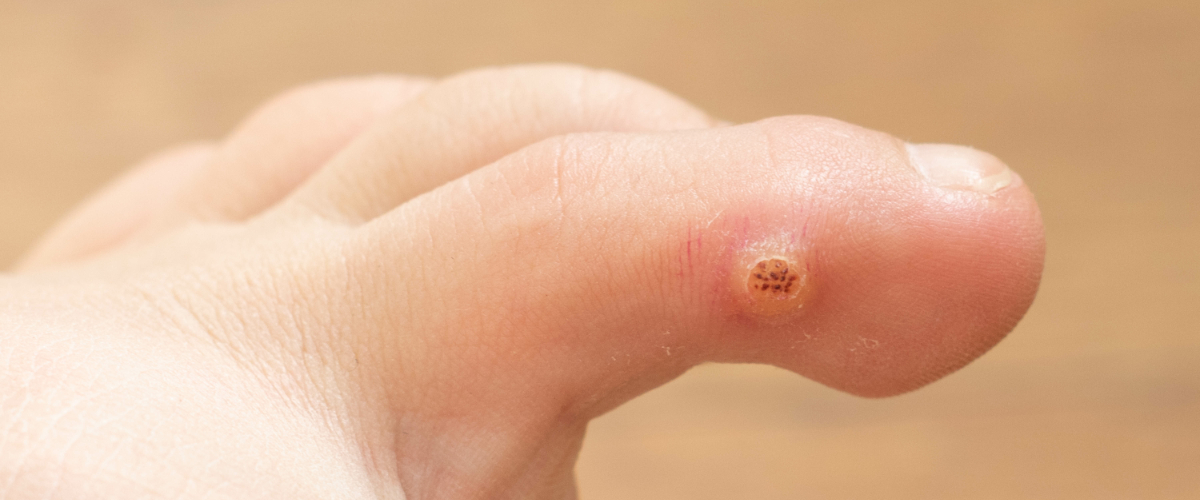
What are Plantar Warts?
A plantar wart signals the invasion of a virus to the outer layers of skin of your foot, often through a small cut or opening. These gaps can be so small that you don’t even notice them—but the virus does!
Once inside your skin, the virus begins to form a wart. These generally appear as hard, flat, rough bumps on the skin that disrupt the normal “lines” of your foot. Warts that are in non weight-bearing areas (like toes) might appear more raised, while warts on the soles may be flattened due to pressure.
You might also see little pinpoints of black within the wart, which are sometimes called “seeds.” Note that these are not seeds and you should not attempt to pick them out! They are actually small blood vessels that have grown into the wart.
What Causes Plantar Warts?
In most cases, people with plantar warts encountered the virus either by coming into contact with another’s warts, or by walking barefoot in areas where the virus can thrive, such as locker rooms or around public pools.
The virus itself is not extremely contagious, but it’s best not to risk it, especially in areas of high exposure.
Children and teenagers tend to be more susceptible to infection, due to increased likelihood of exposure and less well developed immune systems.
Other potential risk factors include:
- Wearing damp socks and shoes
- Having a weakened immune system
- Having a history of warts
Should You See a Podiatrist for Plantar Warts Treatment?
Plantar warts can go away on their own, but this can take a very long time. Sometimes plantar warts will disappear only to reappear again later on. So if your warts are bothering you and you don’t want them to spread, you should definitely get them treated.
We’d also strongly encourage to see us if:
- Your warts are painful. This can happen if a wart develops in high-pressure areas, such as the heel. Pain is never something you should have to endure, and is always worth seeing us about!
- Your warts persist, keep returning, or multiply.
- You have diabetes or poor circulation in your feet.
- The wart is bleeding or changes in appearance or color.
- Your wart increases in size.
And yes, we know about duct tape and other “home remedies” for warts. There’s little harm trying them as long as you never attempt to cut into a wart yourself. However, there is little to no scientific evidence that these methods are effective. If you are at all concerned about your warts spreading, it’s best to just see us right away.
What Plantar Wart Treatment Options are Available?
At Northeast Foot and Ankle, we offer a range of plantar wart treatment options including laser therapy, microwave therapy, topical medications, and surgical excision.
Swift® Microwave Therapy
The Swift® system is a non-invasive device that uses precisely tuned microwave energy to increase the temperature of the treatment area, resulting in the coagulation of the soft tissue. This cutting-edge, FDA cleared technology has proven to be highly effective in the removal of plantar warts. Treatment varies by patient and individual response to the treatment. Adults typically require 3-4 treatments, 4 weeks apart, while children typically require 1-2 treatments for successful plantar wart removal. We like to say that we’re addressing the root cause, not the symptom.
Cutera GenesisPlus Laser Therapy
Laser therapy via the Cutera GenesisPlus laser system is an effective treatment for warts. During the brief, 10-15 minute procedure, light energy from the laser seals off blood vessels that supply the wart. Once cut off from oxygen and nutrients, the wart itself will disappear naturally and does not need to be “burned,” “frozen,” or “peeled” off (as with traditional destructive treatment methods). Laser therapy also requires no downtime or aftercare beyond the appointment itself. You simply go back to your normal activities. In most cases, 3-8 sessions spread out over several weeks are needed to fully clear all plantar warts. Learn more about Cutera GenesisPlus.
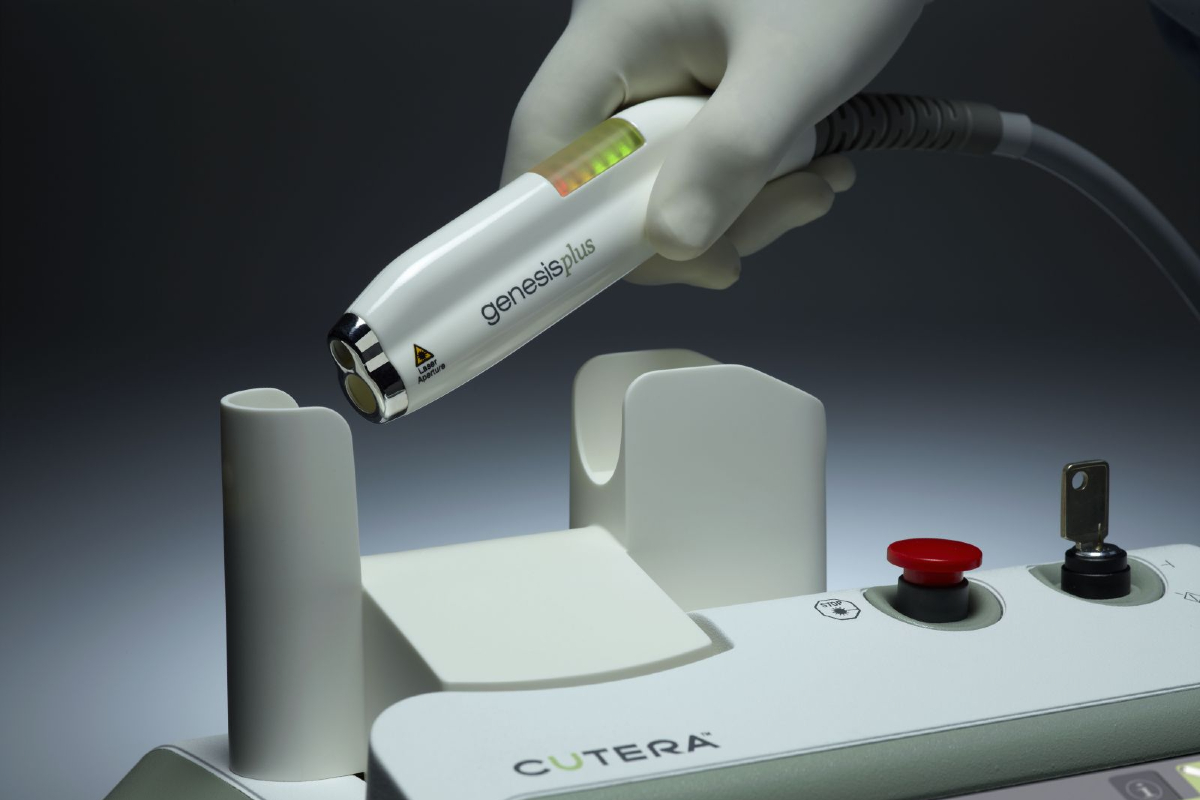
Surgical Excision
The surgical excision of plantar warts works by removing the wart by cutting it out entirely (excision). This is typically a last resort since it can be painful and takes time to heal. *Additional pathology lab costs may apply.
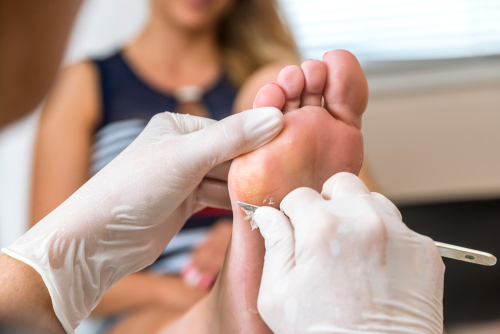
Topical Medications
We also offer topical medications that you apply once or twice a day. This includes drying agents, as well as drying agents mixed with antiviral agents.
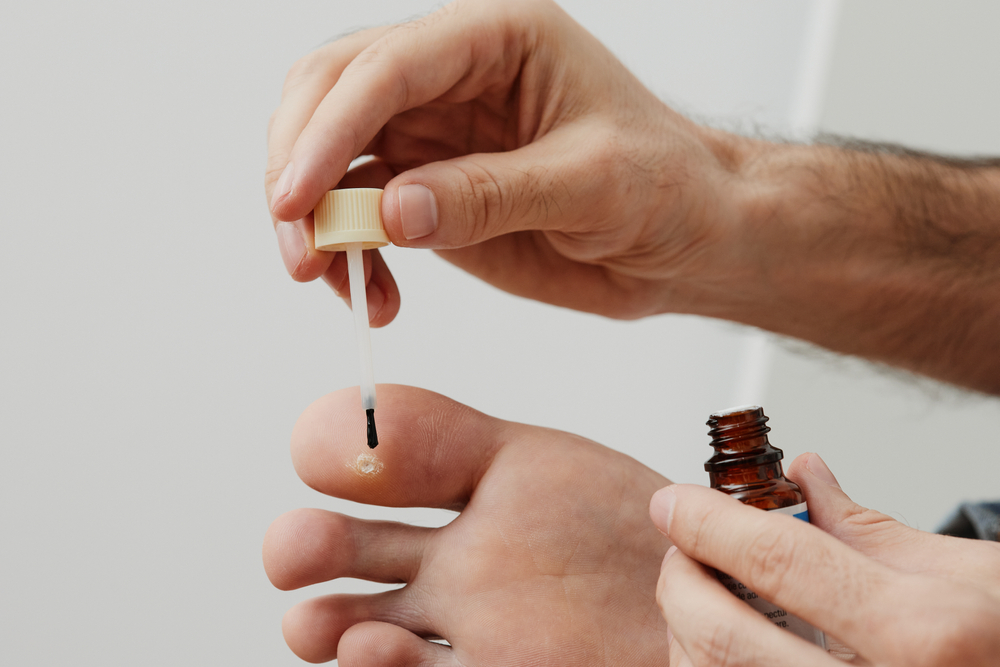
Plantar Warts? We Can Help.
When you visit our office, we will be sure to evaluate your situation carefully and explain all your options to you fully so you can make an informed decision. Book a consultation, today.
We are conveniently located with offices in Portsmouth and Nashua, NH. Not only do we serve New Hampshire residents but we also treat those from Massachusetts including Newburyport, Amesbury, and Salisbury.
Pay Your Bill
Make a payment online through our payment portal or Care Credit!
Portsmouth Office
14 Manchester Square, Suite 250
Portsmouth, NH 03801
Nashua Office
17 Riverside Street, Suite 205
Nashua, NH 03062
Website Hosted by SC Digital


